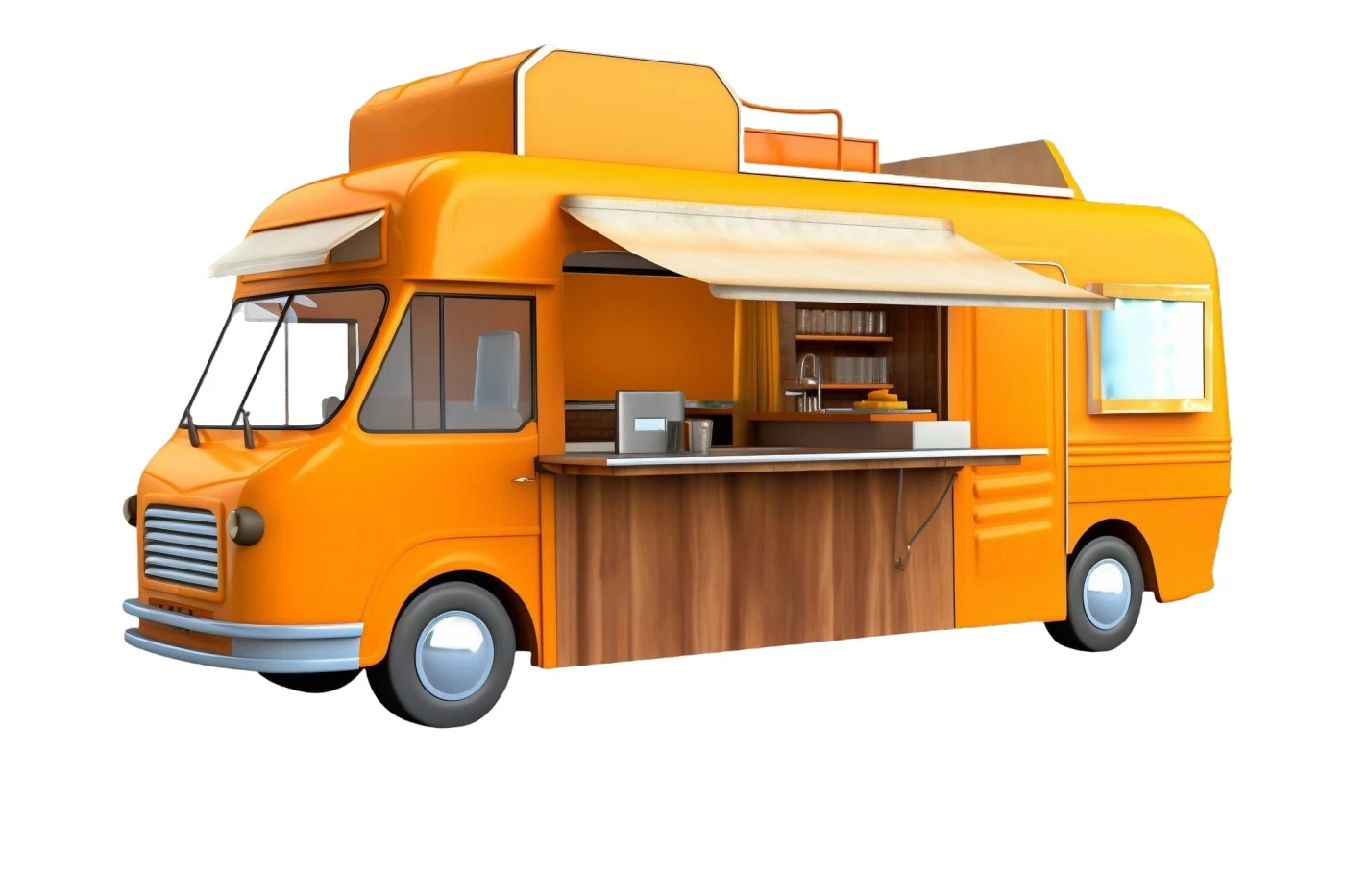Starting a food truck business in Florida is an exciting possibility to share your culinary creations with a huge target audience whilst enjoying the freedom of mobility. Whether you’re serving locals or travelers, food vans thrive in Florida due to the nation’s colorful food way of life, terrific 12 months around weather, and several outside occasions that attract massive crowds. However, before you hit the road and start a food truck business in Florida, it is vital to navigate the numerous licenses and lets required to operate legally. Though the procedure might seem daunting, expertise in those necessities is fundamental to avoiding fines and ensuring your business runs smoothly from day one.
Florida’s booming food truck business makes it a perfect area to show your ardor for meals right into a profitable venture. With the proper planning and cautious execution, you can rework your dream into a thriving mobile business. From learning your opposition to securing the essential licenses and lets in, every step is important in putting your business up for fulfillment. In this manual, I will stroll via the seven critical steps to help you get your food truck on the street with self belief. If you’re equipped to embark on this interesting journey, permit’s dive into the manner and get your Florida food truck business up and running!
Step 1: Understand the Food Truck Business in Florida
Before jumping into the food truck enterprise, it’s critical to understand why Florida is an appropriate vicinity to begin. Thanks to its year-long warm climate and thriving tourism, the nation gives countless opportunities for meal vehicles to be successful. Cities like Miami, Tampa, and Orlando appeal to locals and vacationers eager for quick, tasty food. However, with this developing recognition comes fierce competition, making it essential to locate your niche. Understanding the market, competition, and seasonal traits is the primary and most important step to positioning your food truck for long-term success.
Whatever You Need to Know:
- Popularity and Competition: Florida’s food truck scene is flourishing, however opposition is fierce. You’ll want a unique idea that sets your truck apart from others.
- Seasonality: The fall, iciness, and spring are high seasons due to Florida’s tourism boom, especially in cities like Orlando, Miami, and the seashores. Summers can be slower, but you could use this time to refine your operations.
- Costs and Profits: If managed nicely, food trucks in Florida can generate between $250,000 and $500,000 yearly, giving you sizable earning ability.
- Identifying Your Target Audience: Whether it’s vacationers seeking out a brief bite, locals playing outside on occasion, or households at fairs, it’s essential to understand who you’re serving to tailor your menu and services effectively.
By laying this foundation, you are placing your enterprise up for fulfillment. Move towards creating a plan that brings your vision to life!
Step 2: Develop a Food Truck Business Plan

After understanding the food truck market in Florida, the next vital step is growing a sturdy marketing strategy. A well-established plan serves as your roadmap to achievement and helps you stay prepared at the same time as securing funding if needed. Below I offer some steps to broaden your plan.
Mission Statement:
Clearly define the purpose of your food truck. Are you bringing Southern BBQ flavors to the streets or supplying cutting-edge vegan dishes? Your task may be to control all elements of your business.
Defining Your Business Goals and Vision:
What do you want to gain together with your food truck business? Whether you’re aiming for multiple vehicles or specializing in an unmarried cellular kitchen, setting both brief-time period and lengthy-term dreams is vital for measuring your development.
Financial Planning: Budgeting and Costs:
Estimate the finances you’ll need to start your food truck business, generally between $50,000 and $150,000. Include expenses for the truck, system, licenses, marketing, and everyday operations.
Researching Your Competition:
Take a close look at other food trucks in your vicinity. What’s their menu, pricing, and target audience? Understanding your competition permits you to carve out a unique spot inside the marketplace.
Creating a Marketing Strategy:
Develop a way to construct your customer base. This can consist of social media, partnerships with community companies, and attending neighborhood sports to promote your food truck.
Now that you have a solid plan in place, you’re one step closer to hitting the road with your food truck!
Read More How to Write a Food Truck Business Plan
Step 3: Choose Your Food Truck Concept and Menu
Your food truck’s idea and menu will set the tone for your complete business. Florida is well-known for its wealthy mixture of cultures and its ardor for diverse, flavorful cuisines. Offering a wells conceived menu that complements your idea is vital to attracting and maintaining customers.
Steps to Choose Your Concept:
- Identify a Niche: Offer something that sticks out whether it’s a kind of delicacy, a specific subject matter, or a unique cooking style.
- Keep It Simple: A streamlined menu with a few standout dishes will help lessen food fees and reduce kitchen pressure.
- Test Your Ideas: Before launching, test your recipes on friends, family, or at local events.
For Example: If you like BBQ, you can provide a food truck that specializes in Florida-fashion smoked meats, emphasizing regionally sourced components.
Step 4: Get the Right Licenses and Permits for Your Food Truck

Now the subsequent and most important step is food truck business licenses and allows. The felony side of the food truck enterprise may seem hard, however, it’s miles an essential step. Florida has precise requirements for food truck owners, including acquiring licenses, lets, and certifications. Make certain you’re in complete compliance with both state and local guidelines.
Licenses You’ll Need to Operate in Florida:
Each city and county in Florida has its own requirements, however a few licenses are ordinary throughout the state.
Food Service License:
Every meal truck must have a food provider license. You can gain this through the Florida Department of Business and Professional Regulation (DBPR).
Health Permits and Food Safety Certifications:
Food safety is critical, and food vehicles have to meet the same requirements as brick and mortar eating places. Ensure your group is certified in food protection practices.
Applying for Your Mobile Food Vendor License:
You’ll need a cellular food dealer license, which you could follow via the DBPR. Be certain to test neighborhood city guidelines for extra permits. Here’s where to submit an application.
Understanding Parking Rules:
Parking policies can be complex. You can’t park and serve everywhere, so make certain you already know where food vehicles are allowed to function, along with any deadlines or restrictions.
Pro Tip: Double check the particular necessities in your nearby place. Major cities like Miami, Orlando, and Tampa may additionally have different allowances.
Step 5: Buy or Rent a Food Truck
One of the greatest decisions you’ll make is obtaining your food truck. Whether you buy or rent, the situation and setup of the truck can affect the overall success of your enterprise. Carefully keep in mind your alternatives earlier than making this funding.
When finding out among shopping for or renting a food truck, every choice has specialists and cons. Renting lowers startup prices, making it simpler to start, however shopping for offers you complete manipulation over customization, allowing you to tailor the truck to your unique desires. Choose primarily based on your price range and lengthy-term dreams.
Inspecting a used food truck is important before buying. Check the engine, kitchen system, and usual situation to keep away from doubtlessly steeply-priced upkeep. Whether buying new or used, make certain the truck meets your business needs.
Customizing your truck’s format is crucial for performance. Your kitchen setup ought to match your menu, taking into account short prep and easy provider. Tailor the truck to make your workflow easier and quicker.
Regular renovation is essential to keep your truck going for walks smoothly. Staying on the pinnacle of upkeep and inspections will prevent breakdowns and lost sales during busy instances. Reliable preservation maintains your commercial enterprise shifting ahead.
Step 6: Promote Your Food Truck Business
Once your food truck is prepared, selling its miles is the subsequent huge step in growing your business and constructing a faithful purchaser base. Start by developing a sturdy social media presence on structures like Instagram and Facebook. Post mouth-watering pics of your food, and a percentage of your vicinity, and keep clients up to date on any specials or activities. Eye-catching branding is every other key detail your truck’s layout, emblem, and menu must be memorable and attractive to capacity customers. Investing in expert branding can make your truck stand out in a crowded market. Additionally, taking part with other local corporations can raise your visibility. Partnering with breweries, markets, or neighborhood festivals no longer most effectively expands your reach however additionally helps you tap into their established purchaser base. Whether it is teaming up for events or presenting food at famous spots, these collaborations can force greater site visitors into your food truck and grow sales. By combining these techniques, you’ll be nicely on your way to constructing a successful food truck business.
For Example: Consider partnering with nearby breweries in Florida. Many food vans find success by serving food at breweries, where customers regularly experience pairing food with craft beers.
Step 7: Hit the Road and Start Serving!
Once you’ve completed all of the preceding steps, it’s time to hit the road and begin serving your delicious food! Plan your direction carefully to maximize publicity and income. Florida’s busy downtowns, beaches, and vacation spots offer several locations where you may install shops.
Tips for a Successful Launch:
Choose High-Traffic Areas: Start in locations with heavy foot traffic like Miami’s South Beach or Orlando’s theme parks.
- Offer Special Deals: Entice first-time customers with special discounts or promotions.
- Keep Adapting: Stay flexible and adapt your menu or business plan based on customer feedback and market trends.
Summary Table: How to Start a Food Truck Business in Florida (with Estimated Costs)
| Step | Key Points | Estimated Cost |
|---|---|---|
| Step 1: Understand the Food Truck Business | Florida’s year-spherical heat climate and vibrant tourism create brilliant possibilities for food vehicles. Get to know your opposition, locate your area of interest, and preserve a watch on seasonal tendencies. | Market Research: Free to $500 (depending on surveys and research tools) |
| Step 2: Develop a Business Plan | Create a task declaration, define goals, define financials (including startup and operating costs), and expand a marketing strategy. Research competition. | Consultation/Planning Software: Free to $2,500 (if hiring a consultant or using business planning software) |
| Step 3: Choose Your Concept and Menu | Focus on a unique food concept that stands out. Keep your menu simple and test your ideas to optimize for efficiency and cost control. | Menu Development/Testing: $200 to $1,000 (depending on ingredients and testing locations) |
| Step 4: Get Licenses and Permits | Obtain food service licenses, and mobile vendor permits, and ensure compliance with local health and safety regulations. Learn about local parking rules. | Licenses/Permits: $500 to $2,000 (varies by city/county in Florida) |
| Step 5: Buy or Rent a Food Truck | Decide whether to buy or rent a food truck. Inspect used trucks and customize the kitchen layout for efficient service. Plan for regular maintenance. | Buying a Food Truck: $50,000 to $100,000 (new); $20,000 to $70,000 (used)Renting: $2,000 to $3,000 per month |
| Step 6: Promote Your Food Truck | Build a social media presence (Instagram, Facebook), spend money on beautiful branding, and collaborate with local agencies and activities for promotions. | Branding: $1,000 to $5,000 (design, logo, truck wrap)Marketing: $500 to $2,500 (social media, events) |
| Step 7: Hit the Road and Start Serving | Choose high-traffic locations, such as Miami’s South Beach or Orlando theme parks. Offer promotions and adapt to customer feedback. | Launch Promotions: $500 to $1,500 (discounts, giveaways) |
Total Estimated Startup Cost:
- Low-End Estimate: $25,000 to $50,000
- High-End Estimate: $150,000 to $250,000
Final Thoughts
Starting a food truck employer in Florida is a difficult but rewarding employer. By following these 7 steps, you’ll be properly on your manner to proudly owning a successful meals truck. Remember, each notable business takes time to develop, so stay patient, stay centered, and maintain turning in super food and providers.
Good luck, and welcome to Florida’s food truck scene!
Frequently Asked Questions
How much does it cost to start a food truck business in Florida?
Starting a food truck business in Florida typically charges between $25,000 and $150,000, depending on whether you purchase or rent a truck, along with customization, allows, and other startup costs.
Can I park my food truck anywhere in Florida?
No, you can’t park and serve food simply everywhere. Florida has precise parking policies, and every metropolis or county may additionally have unique restrictions for food trucks. Be positive to test local regulations before working.
Do you need a food license to sell food in Florida?
Yes, you’ll want a food carrier license from the Florida Department of Business and Professional Regulation (DBPR), as well as specific fitness allowances and meal protection certifications to function legally.
What permits are needed for a food truck in Florida?
To operate a food truck in Florida, you may need numerous permits, including a food provider license, a cellular food vendor permit, and fitness and protection certifications. You can also want local parking lets in, depending on the town or county.
Are food trucks profitable in Florida?
Yes, food cars can be notably worthwhile in Florida due to the kingdom’s tourism, out-of-door events, and seasonal warm weather. With an excellent advertising approach and particular idea, food Motors can generate annual sales between $250,000 and $500,000.
Related Articles
7 Steps to Grow Your Business on Social Media
How to Grow a Business with No Money
5 Pro Tips to Grow a Burger Business
Welcome to Mini Business Hub! I'm Zenith, the founder and passionate voice behind this blog. With years of experience in business planning, startup development, and digital marketing, I am dedicated to helping aspiring entrepreneurs and small business owners achieve their dreams. Through Mini Business Hub, I provide practical advice, actionable steps, and insightful tips to guide you in planning, starting, and growing your business. Join me on this journey to turn your business ideas into reality and create a successful future. Let's make your business dreams come true, one step at a time.

